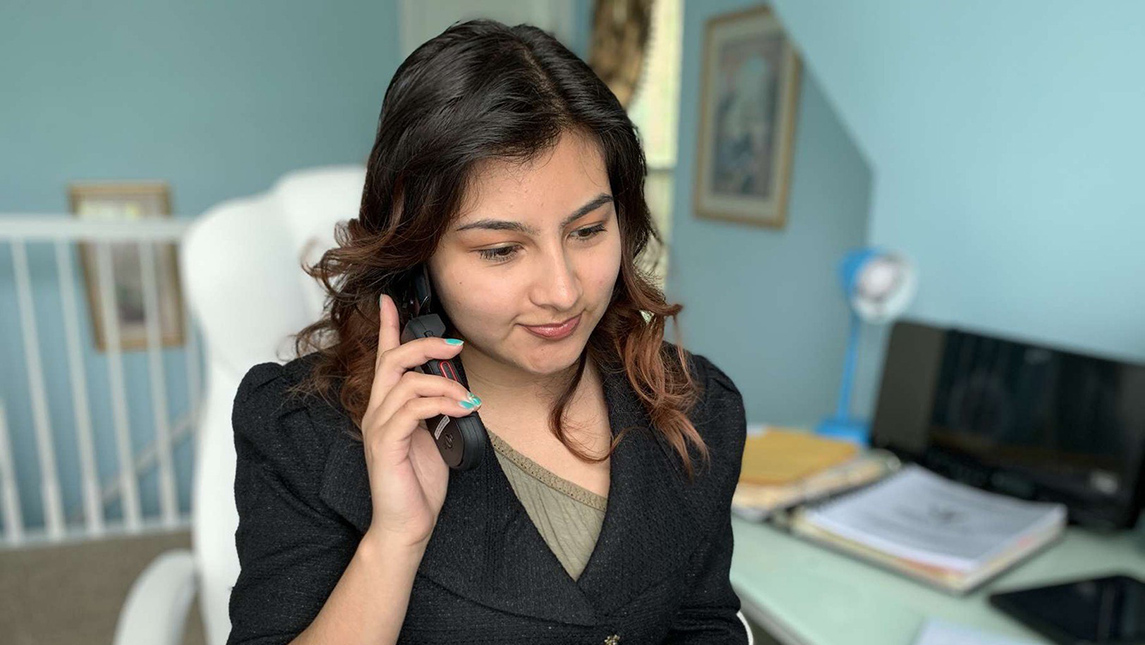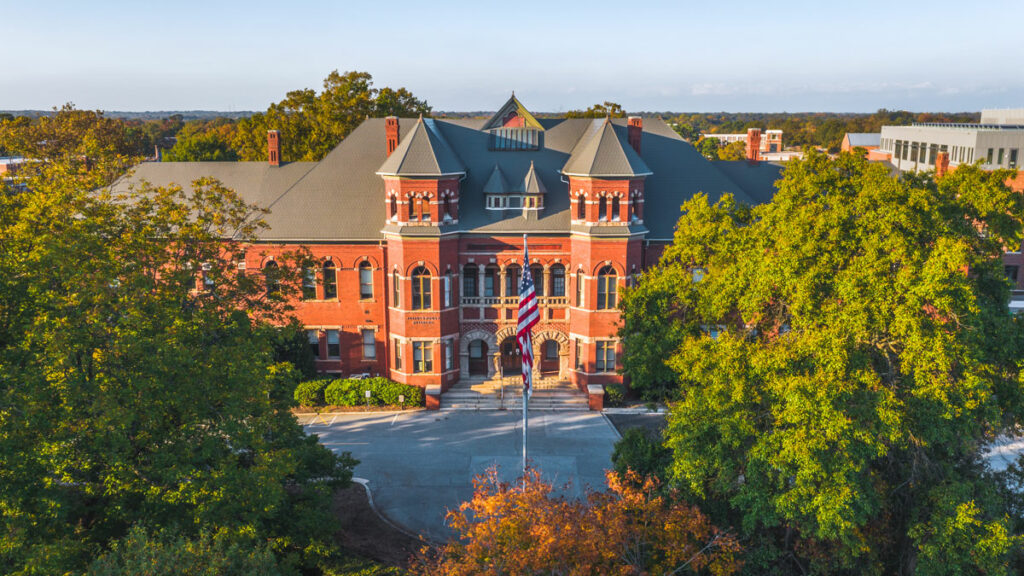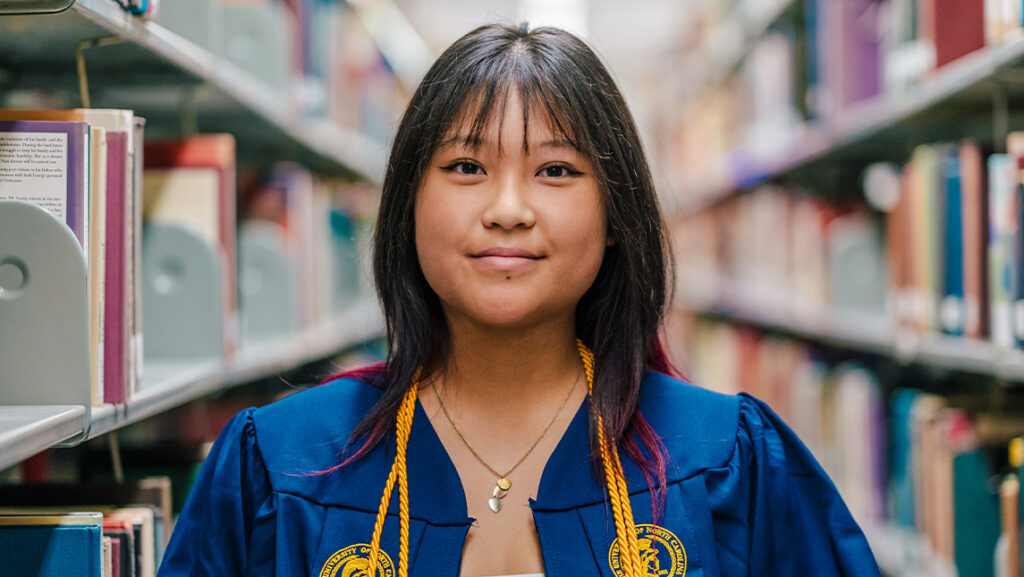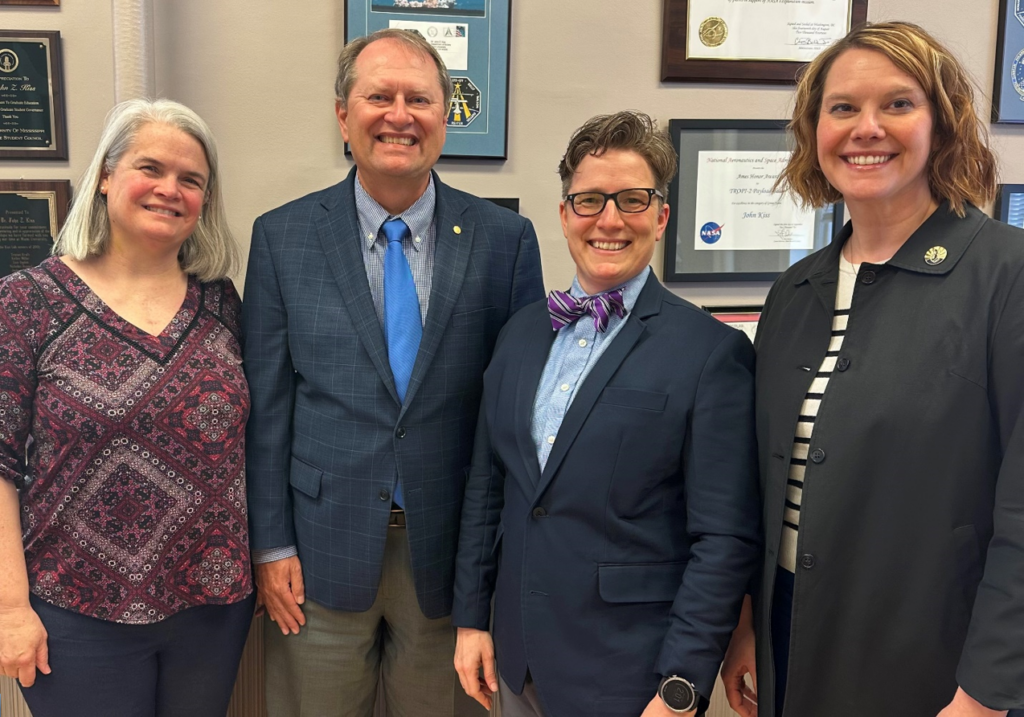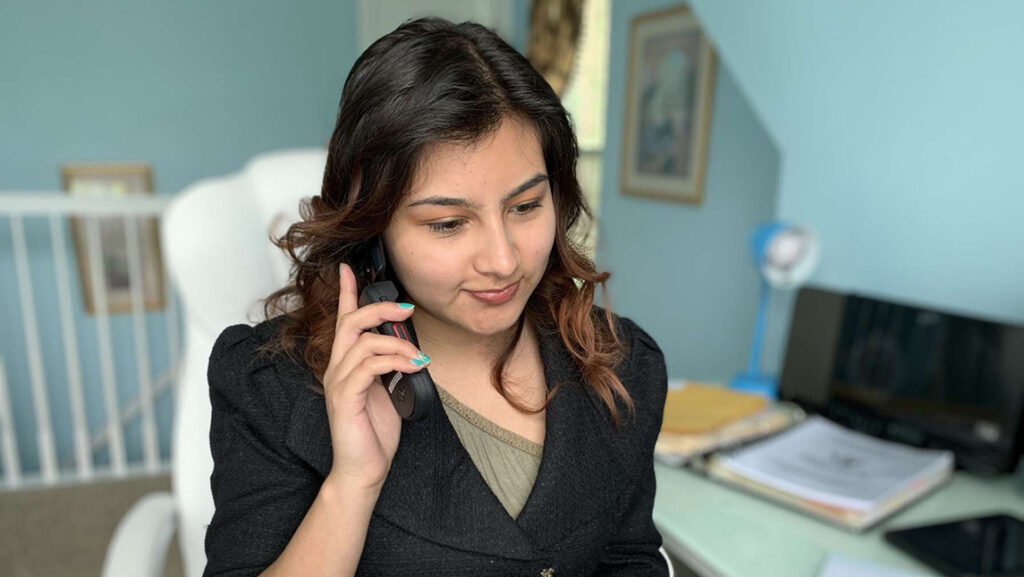
In the age of smartphones, social media, and information overload, mental health has become top of mind for many of us.
Now, with the COVID-19 pandemic and so many people experiencing increased precarity and uncertainty, mental health is even more of a public health concern.
But not everyone has access to much needed mental health services. Many Americans are uninsured. Others don’t have the time to take off work and get the help they need. For many, affordability remains a barrier.
A UNC Greensboro research study – “Strong Minds, Strong Communities” – aims at addressing this issue of access. The five-year, $4 million National Institutes of Health-funded study targets disparities in mental health care access for underserved populations, primarily racial/ethnic and linguistic minority populations.
The study, which launched last year, is led by psychology professors Dr. Gabriela Livas Stein and Dr. Kari Eddington. The 12-person team includes five community health workers who have been trained to deliver an empirically-supported mental health intervention. Health workers have teamed up with community partners to recruit participants who are in need of these services.
The intervention is offered in both English and Spanish. Roughly 65% of the study’s participants identify as Latinx, and the project also serves a large African American population.
“It’s really important to have a population-based solution that gives people access to services that are culturally-relevant and in their home language,” Stein explains. “Having community health workers who are integrated in the community allows for the intervention to be really embedded and enriched by cultural nuances.”
Studies have shown that in the United States, only 11% of Latinx people who need mental health services are able to obtain them. Similarly, only 13% of African Americans obtain the mental health services they need.
Due to COVID-19, the intervention is now offered over the phone and via video conferencing. According to Stein, the research team has seen increased levels of distress since the outbreak.
“There are economic stressors and illness, and we’ve noticed an increase in suicidality,” says Stein. “We’ve also heard that a lot of our participants have lost jobs. A lot of them work in the service industry.”
Leslie Estrada, a 2019 UNCG graduate who studied sociology and psychology, is one of the community health workers who is delivering this intervention, now virtually, to community members in need.
“A challenging part about doing it virtually is you’re not able to see someone’s facial expressions or body language,” she says. “It was definitely a transition.”
She says that participants seem more anxious now than they were before. But the good news is that the intervention appears to be working.
“I’ve noticed symptoms dramatically reduce,” she says. “It’s amazing to see how people can grow throughout the intervention. We’re just there as a guide – it’s up to them to put in the work. I’ve seen people improve, and that’s been fulfilling.”
The study currently has 90 participants, but Stein says they hope to enroll up to 600 people. In the future, the research team plans to train the staff of community organizations to deliver the intervention, so that even more people can be reached.
“I think the pandemic has really highlighted a lot of the disparities that exist in our communities around health care access and health” says Stein. “It’s really important that we target these disparities and make sure people have the ability to live the best life that they can.”
Learn more at caminoslab.org/strongminds.
Story by Alyssa Bedrosian, University Communications
Photography courtesy of Leslie Estrada ’19
